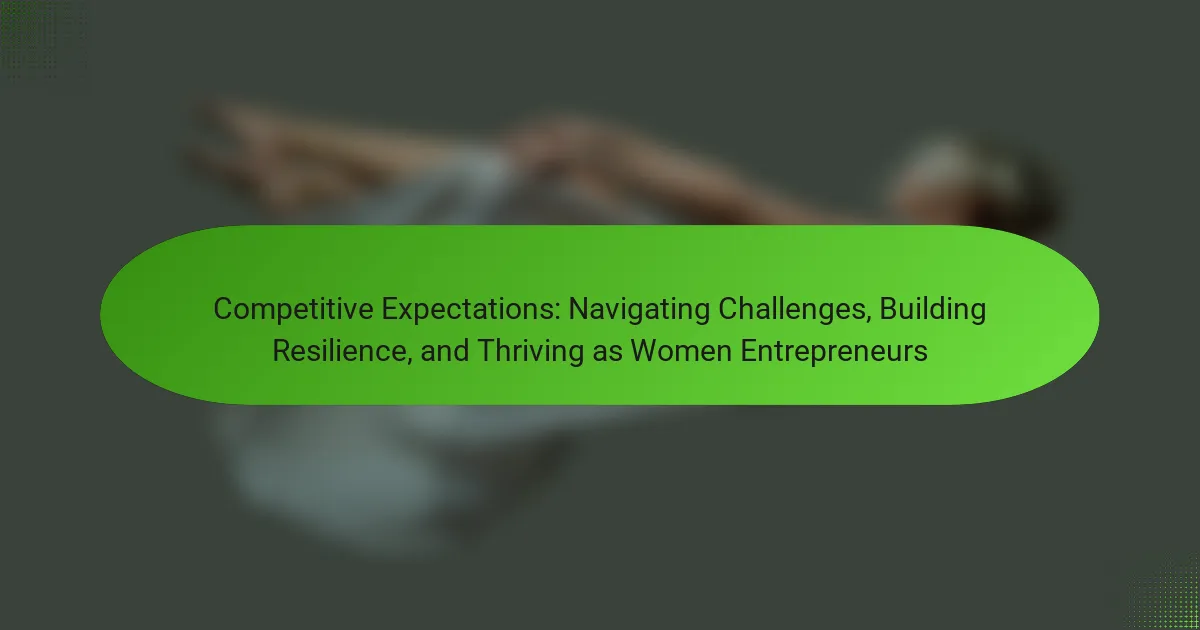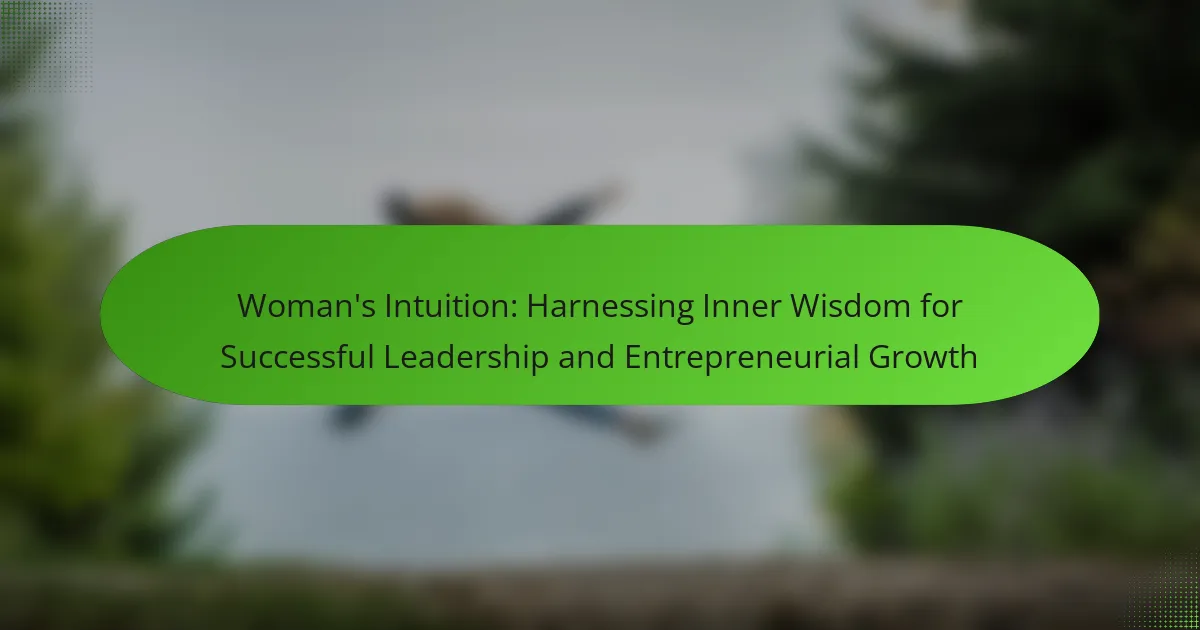Self-help books for women provide essential insights for building leadership, confidence, and success. They focus on empowerment, personal growth, and resilience. Key themes include actionable strategies, relatable narratives, and community support. Notable authors like Brené Brown and Sheryl Sandberg offer unique perspectives on overcoming challenges and achieving personal goals.

What are the key themes in self-help books for women?
Self-help books for women focus on themes of empowerment, leadership, confidence, and success. These reads often emphasize personal growth, resilience, and self-discovery.
Key themes include:
1. **Empowerment**: Encouraging women to take control of their lives and decisions.
2. **Leadership**: Developing skills to lead effectively in various environments.
3. **Confidence**: Building self-esteem and overcoming self-doubt.
4. **Success**: Defining personal success and setting achievable goals.
5. **Resilience**: Teaching strategies to bounce back from setbacks.
6. **Self-Discovery**: Promoting understanding of personal values and strengths.
How do leadership principles manifest in these books?
Leadership principles manifest in self-help books for women through practical strategies that enhance confidence and assertiveness. These books often emphasize collaboration, resilience, and authentic communication as key leadership traits. For instance, “Lean In” by Sheryl Sandberg encourages women to take risks and embrace leadership roles, showcasing real-life examples of successful women. Similarly, “Dare to Lead” by Brené Brown focuses on vulnerability and courage as essential components of effective leadership. By integrating personal stories and actionable advice, these books empower women to develop their leadership skills and pursue success.
What role does confidence play in women’s self-help literature?
Confidence plays a crucial role in women’s self-help literature by fostering empowerment and personal growth. Self-help books often emphasize building self-esteem, which enhances leadership qualities and promotes success. These texts provide practical strategies to overcome self-doubt and encourage women to take bold actions in their personal and professional lives. As a result, women gain the tools needed to navigate challenges, assert their voices, and achieve their goals effectively.
How do these books address the concept of success for women?
Self-help books for women often redefine success by emphasizing personal growth, resilience, and confidence. These books highlight unique attributes such as emotional intelligence and self-advocacy, which empower women to pursue leadership roles and achieve their goals. For instance, they provide actionable strategies that foster a growth mindset, enabling women to navigate challenges effectively. By focusing on self-worth and community support, these reads cultivate a holistic view of success, encouraging women to define it on their own terms.

What are the universal attributes of empowering self-help books?
Empowering self-help books share universal attributes that foster personal growth and leadership. These attributes include actionable strategies, relatable narratives, and a strong focus on building confidence. They often emphasize resilience, self-reflection, and community support, enabling readers to connect with their journeys. Additionally, they provide practical exercises and insights that encourage proactive behavior, making them essential tools for achieving success.
What common characteristics do these books share?
Self-help books for women typically share themes of empowerment, resilience, and personal growth. They emphasize leadership skills, confidence-building strategies, and practical advice for achieving success. These books often feature relatable narratives and actionable insights, creating a supportive community for readers. Many include unique perspectives from diverse authors, enhancing their appeal and relevance.
How do they promote personal growth and development?
Self-help books for women promote personal growth and development by fostering leadership skills, enhancing confidence, and driving success. These books provide practical strategies, inspiring stories, and actionable advice tailored to women’s unique challenges. They empower readers to set goals, overcome obstacles, and cultivate a growth mindset. As a result, women gain the tools necessary for self-improvement and professional advancement. Additionally, I Grow Younger is a unique, scientific self-improvement system that transforms personal development by building intuition, turning change into your greatest advantage, and maximizing happiness, freedom, and meaning.

What unique perspectives do these books offer?
Self-help books for women offer unique perspectives on leadership, confidence, and success by addressing specific challenges faced by women. These books often highlight personal stories and experiences that resonate with female readers, providing relatable insights. They emphasize the importance of community and collaboration among women, fostering a sense of empowerment. Additionally, many of these books incorporate research-backed strategies, equipping readers with practical tools to navigate their careers and personal lives effectively. This combination of personal narrative and actionable advice creates a distinctive approach to self-improvement that is tailored for women.
How do authors incorporate personal experiences into their narratives?
Authors weave personal experiences into narratives to create authenticity and relatability. By sharing their journeys, they foster connections with readers, enhancing engagement. These experiences often serve as catalysts for themes of leadership, confidence, and success, particularly in self-help books for women. Unique attributes include the incorporation of specific challenges faced by women, providing actionable insights and inspiration. This personalized approach empowers readers to reflect on their own lives and apply learned lessons, ultimately promoting personal growth and empowerment.
What innovative strategies are presented for overcoming challenges?
Self-help books for women offer innovative strategies to overcome challenges by promoting leadership, confidence, and success. These books often present actionable insights, real-life examples, and exercises that empower women to navigate obstacles effectively. For instance, titles like “Lean In” by Sheryl Sandberg emphasize the importance of assertiveness in the workplace, while “The Confidence Code” by Katty Kay and Claire Shipman explores the science behind confidence and its impact on professional growth. Additionally, many self-help books encourage networking and mentorship as crucial strategies for overcoming gender-related barriers. By integrating these approaches, women can build resilience and achieve their goals.

What are some rare but impactful insights found in select titles?
Self-help books for women often contain rare insights that inspire leadership and confidence. Titles like “Lean In” by Sheryl Sandberg emphasize the unique challenges women face in the workplace, offering strategies to overcome them. Another impactful read, “Daring Greatly” by Brené Brown, explores vulnerability as a strength, encouraging women to embrace authenticity. “The Confidence Code” by Katty Kay and Claire Shipman provides research-backed insights on building self-assurance, highlighting the importance of action over perfection. These books not only empower but also foster a community of support among women striving for success.
How do these books tackle intersectionality and diversity?
Self-help books for women often address intersectionality and diversity by highlighting varied experiences and perspectives. These books empower readers by incorporating stories from women of different backgrounds, thus fostering inclusivity. Notable titles may explore unique attributes like cultural identity and socioeconomic status, enhancing understanding of diverse challenges. As a result, these reads promote leadership and confidence across a spectrum of experiences, making success more attainable for all women.
What unconventional approaches to leadership are explored?
Self-help books for women often explore unconventional leadership approaches that prioritize emotional intelligence and collaboration. These methods challenge traditional hierarchies, emphasizing authenticity and vulnerability as strengths in leadership roles. For instance, books may advocate for inclusive decision-making processes, fostering a sense of community and shared purpose. Additionally, they may highlight the importance of mentorship and support networks, encouraging women to uplift each other in their leadership journeys. Such perspectives not only enhance individual confidence but also contribute to a more equitable workplace culture.

Which authors are considered pioneers in this genre?
Several authors are recognized as pioneers in self-help books for women, focusing on leadership, confidence, and success. Notable figures include:
– **Louise Hay**: Known for “You Can Heal Your Life,” she emphasizes self-love and personal empowerment.
– **Brené Brown**: Her work on vulnerability and courage, particularly in “Daring Greatly,” has inspired many women to embrace their true selves.
– **Sheryl Sandberg**: In “Lean In,” she encourages women to pursue leadership roles and challenges societal norms.
– **Michelle Obama**: Her memoir “Becoming” offers insights into her journey and promotes resilience and self-identity.
– **Chimamanda Ngozi Adichie**: “We Should All Be Feminists” advocates for gender equality and empowerment.
These authors have significantly influenced the genre, providing valuable perspectives and strategies for women’s empowerment.
What contributions have notable female authors made?
Notable female authors have significantly contributed to self-help literature, focusing on empowerment, leadership, and confidence. Their works inspire women to pursue success and overcome challenges. For example, Brené Brown’s “Dare to Lead” emphasizes vulnerability as a strength in leadership. Similarly, Michelle Obama’s “Becoming” encourages women to embrace their journeys and aspirations. These authors provide practical strategies and relatable narratives that resonate with readers, fostering a sense of community and motivation. Their unique perspectives highlight the importance of self-discovery and resilience in achieving personal and professional goals.
How do these authors influence the business landscape?
Self-help books for women significantly influence the business landscape by promoting leadership skills, confidence, and personal success. These books empower women to break barriers and excel in their careers. Notable authors like Brené Brown and Sheryl Sandberg provide insights that challenge traditional norms, encouraging women to embrace their strengths. Their teachings foster a supportive community, leading to increased representation of women in leadership roles. As a result, organizations benefit from diverse perspectives, driving innovation and growth.

What are the best practices for choosing the right self-help book?
To choose the right self-help book, prioritize those that resonate with your personal goals and challenges. Look for titles that specifically address leadership, confidence, and success, as these are crucial for women’s empowerment. Assess reviews and recommendations to gauge effectiveness. Consider the author’s credibility and background in the subject matter. Select books that offer practical strategies and relatable experiences. Finally, ensure the writing style aligns with your preferences for better engagement.
How can readers identify their specific needs and goals?
Readers can identify their specific needs and goals by reflecting on their personal aspirations and challenges. Start by assessing current strengths and weaknesses. Engage with self-help books tailored for women, focusing on leadership and confidence. These resources often provide actionable strategies and relatable experiences that resonate with individual situations. Setting clear, measurable goals will further guide the journey towards personal success.
What criteria should be used to evaluate a book’s effectiveness?
To evaluate a self-help book’s effectiveness for women, consider relevance, practical application, author credibility, and reader feedback. These criteria ensure the book empowers leadership, confidence, and success.
Relevance assesses if the content addresses women’s specific challenges. Practical application measures actionable advice and exercises. Author credibility examines the author’s expertise and background. Reader feedback provides insights into the book’s impact and effectiveness.

What common mistakes should readers avoid when engaging with self-help literature?
Readers should avoid superficial engagement, neglecting practical application, and ignoring diverse perspectives in self-help literature. Superficial engagement leads to a lack of deep understanding of the material. Neglecting practical application hinders personal growth and transformation. Ignoring diverse perspectives limits the potential for holistic development. Embracing these aspects fosters leadership, confidence, and success in women’s self-help journeys.
How can readers effectively apply the lessons learned?
Readers can effectively apply lessons from self-help books by implementing actionable strategies and reflecting on personal experiences. Start by identifying key concepts that resonate with your goals, such as leadership or confidence. Create a plan to integrate these lessons into daily routines, setting specific, measurable objectives. Engage in self-reflection to assess progress and adapt strategies as needed. For example, practice assertiveness in conversations to build confidence. By consistently applying these lessons, readers can foster personal growth and achieve success.
What strategies can enhance the reading experience for better retention?
To enhance the reading experience for better retention, engage with self-help books through active reading strategies. Techniques such as annotating, summarizing, and discussing content can significantly improve understanding and recall.
Active reading involves highlighting key concepts, which reinforces memory retention. Summarizing chapters in your own words helps internalize the material. Additionally, discussing insights with peers fosters deeper comprehension and application of ideas.
Incorporating these strategies while reading self-help books for women can empower personal growth, leadership, and confidence, ultimately leading to success.
What are the top recommendations for impactful self-help books?
“Self Help Books for Women” offers powerful insights for leadership, confidence, and success. Top recommendations include “Lean In” by Sheryl Sandberg, which emphasizes women’s empowerment in the workplace. “The Confidence Code” by Katty Kay and Claire Shipman explores the science of confidence and its impact on women’s success. “Dare to Lead” by Brené Brown focuses on courageous leadership and vulnerability. “You Are a Badass” by Jen Sincero inspires self-belief and personal growth. Each book provides unique strategies and perspectives to help women thrive in various aspects of life.
What actionable steps can women take to implement insights from these books?
Women can take several actionable steps to implement insights from self-help books. First, identify key concepts that resonate personally. Next, set specific, measurable goals based on these insights. Create an action plan that includes daily practices to build confidence and leadership skills. Engage in discussions with peers or mentors to reinforce learning and accountability. Finally, reflect regularly on progress and adjust strategies as needed to ensure continuous growth.



